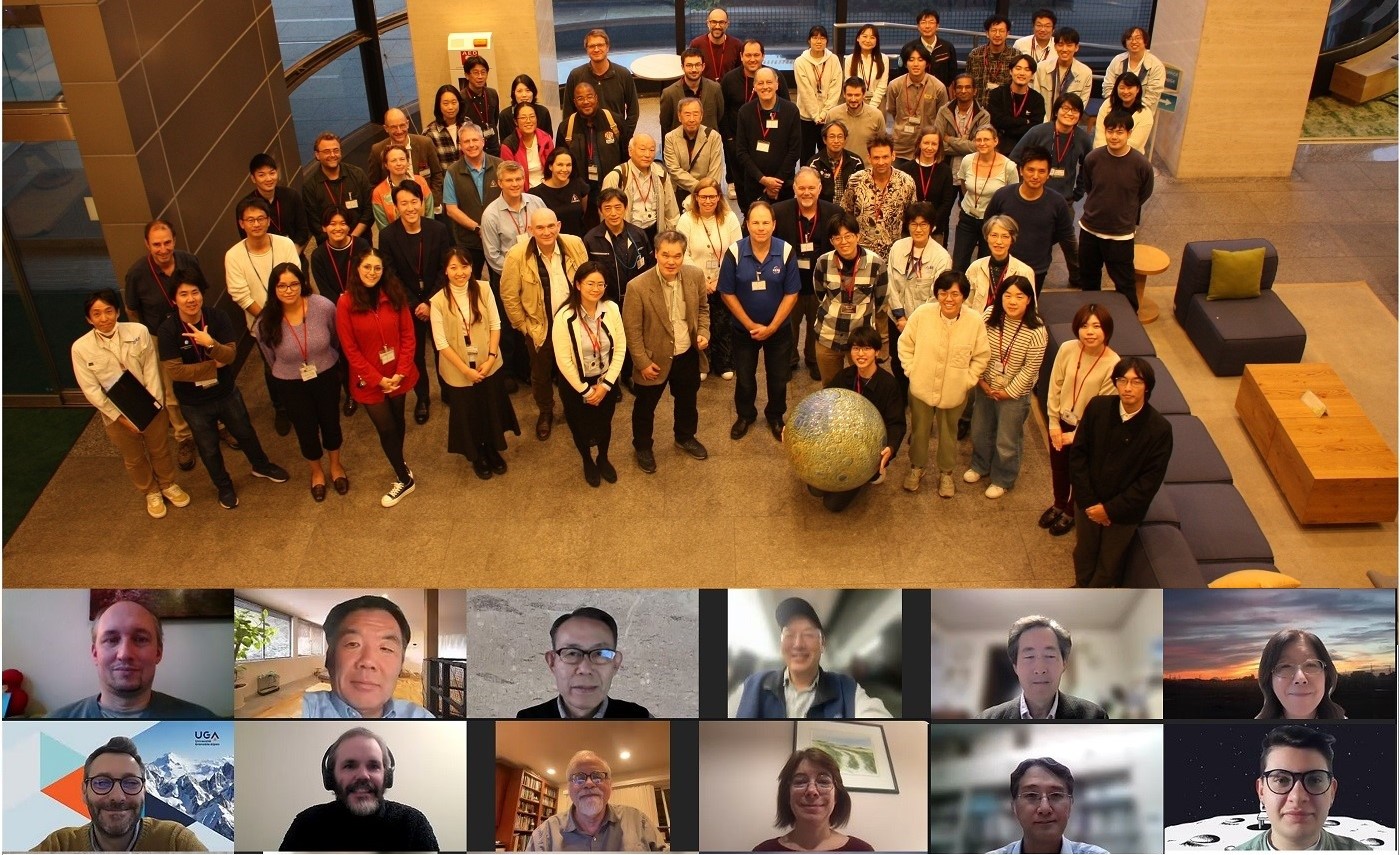
Scope
Hayabusa2 has returned 5.4 grams of samples from the C-type asteroid Ryugu in Dec 2020, and whereas the OSIRIS-REx (Origin, Spectral Interpretation, Resource Identification, Security and Regolith Explorer) operated by NASA has returned 121.6 grams of samples from the B-type asteroid Bennu in Sep 2023. Both asteroids samples had been distributed to researchers for further analyses, and now the research of these samples has been open to anyone who is interested through the announcement of opportunity.
The purpose of this international symposium is to make progress in astromaterials and space science covering a wide range of topics. The main topics for HAYABUSA2024 are new results of Ryugu and Bennu sample analysis and related discussions with the results from remote-sensing, surface measurements, and sample analysis achieved by Hayabusa2 as well as OSIRIS-REx and other missions. In addition, regular topics on any extraterrestrial materials and primitive bodies in the Solar System by theoretical, observational, and experimental studies, new methodology of analysis, and future space missions are highly welcomed!
Hayabusa2024 will be held as a hybrid event on 12-15 Nov 2024 on-site at JAXA Sagamihara Campus and online. Abstracts and oral/poster presentation are accepted only in English. All the students and researchers in scientific community are cordially invited to participate HAYABUSA2024. Let’s enjoy discussing the exciting results and on-going research of the Solar System science. We look forward to seeing you at the symposium!
HAYABUSA2024 will be jointly held with another symposium on planetary material sciences in Japan, "The session of Antarctic meteorites in the 15th Symposium on Polar Science" hosted by the National Institute of Polar Research (NIPR), which will be held on 5 Dec 2024 (Link).
Important dates
Date of the symposium: 12th - 15th November, 2024
| Registration/Abstract submission start | 26th July, 2024 |
|---|---|
| Abstract submission due | 27th September, 2024 |
| Release of program | Mid-October, 2024 |
| Registration due | 30th October, 2024 |
Topics (Regular)
- New results of Ryugu sample analysis
- Studies of Itokawa samples and other primitive materials in the Solar System
- Asteroid-meteorite connections
- Theoretical, observational, and experimental studies on primitive bodies in the Solar System
- Future space missions for understanding the Solar System origin and evolution
- Present and future curatorial work
Topics (Special)
- New results of Bennu sample analysis
- Solar system reference model (Ryugu Reference)
- Outreach for sample curation (panel discussion)
- Publication plan
- Data archiving
- Space weathering
- Fireballs
- Mechanical properties
- Geological context
Invited speakers (in alphabetical order)
- Ron Ballouz (JHU/APL)
- Pierre Beck (IPAG)
- Harold Connolly (Rowan Univ.)
- Cécile Engrand (Univ. Paris-Saclay/IJCLab)
- Daniel Glavin (NASA/GSFC)
- Pierre Haenecour (Univ. of Arizona)
- Peter Jenniskens (SETI Inst.)
- Toshiki Koga (JAMSTEC)
- Patrick Michel (CNRS/OCA)
- Katharina Lodders (Washington Univ. in St. Louis)
- Alice Lucchetti (INAF)
- Nicole Lunning (NASA/JSC)
- Yuri Shimaki (ISAS/JAXA)
- Shogo Tachibana (U. Tokyo)
- Cat Wolner (Univ. of Arizona)
- Koki Yumoto (ISAS/JAXA)
Venue
| On Site | Conference hall (Room 1236) on the 2nd floor of the Research/Administration Building (Bldg. A), ISAS, JAXA Sagamihara Campus |
|---|---|
| Online | The oral session is held in a hybrid style, so the presentation will be shared with online attendees via Zoom. The poster session will not to be held online this year. |
| Banquet | In the evening of Nov. 14 at the cafeteria of ISAS. |
Organization
Astromaterials Science Research Group, ISAS/JAXA
Contact: See here